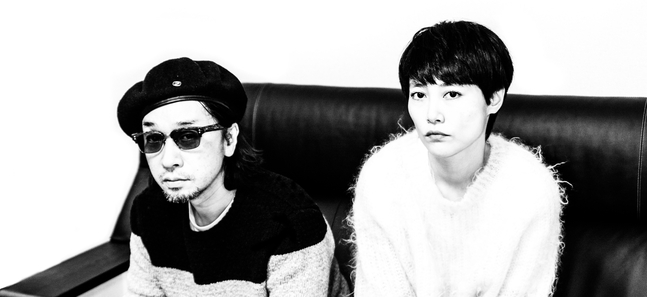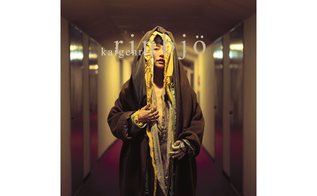The reinvention of Rinko
'Babel' actress Rinko Kikuchi has just released her debut album, spanning electro, pop and hip-hop. But can she rap? Mikiya Suzuki finds out

Rinko Kikuchi and her music producer Naruyoshi Kikuchi
Posted: Fri Jan 23 2015
It’s been eight years since she netted a Best Supporting Actress nomination at the Academy Awards for her role as Chieko Wataya in ‘Babel’, but Rinko Kikuchi has hardly been resting on her laurels. Aside from multiple roles in Japanese films, she’s also popped up in ‘The Brothers Bloom’, ‘Pacific Rim’ and ‘47 Ronin’, and is due to appear alongside Juliette Binoche and Gabriel Byrne in 2015’s ‘Nobody Wants the Night’.
But her success as a film star is not enough to satisfy the ambitious 34-year-old. So, over the last year, in between shooting in New York and Rome, she’s transformed herself into a singer, making her debut under the name Rinbjö in December 2014. ‘I feel that I’m approaching the point where my age isn’t doing me any favours as an actress. I’ve been acting for over 10 years, and I worry that from here on there might only be fading interest in what I’m doing. So I thought, I have to find a new mode of expression,’ says Rinko.
Determined that her next project would have no direct connection to her acting career, she chose music. For her record producer, she picked out Naruyoshi Kikuchi, a jazz musician who wears several hats including those of musical director and columnist. ‘I get a call from my friend, songwriter Tsutomu Noda, and he asks: you know Rinko Kikuchi? And then she gets on the line! I want to make music, she says. Please be my producer. You’re the only one I want,’ Naruyoshi recalls. ‘I honestly thought it was a prank call at first.’
As a firm believer in following your intuition, Naruyoshi didn’t hesitate in saying yes to her. Rinko felt the same, saying she thought from the start that they would work well together. ‘I believe that going with your gut instinct always takes you in the right direction,’ she says.
It seems to have paid off, even though Naruyoshi admits he had no idea where her skills lay, musically speaking. ‘All I knew of her at the time was her face, voice and acting. Most people who switch careers to become singers fall into one of two categories: incredibly good or the complete opposite. But in Rinko’s case, her singing was neither fantastic nor terrible; she just lacked experience and therefore came across as a bit awkward at first.’ Because of this, Naruyoshi decided they should produce a full album from the start; to give people a fuller package, rather than try and showcase her abilities in a one-off track. The result is a 14-track album titled ‘Kaigenrei’ (‘Martial Law’), which hit shelves on 24 December 2014.
Moving away from his jazz roots, Naruyoshi chose a multi-genre feel for the album, using a combination of electro, pop, hardcore and hiphop, and drawing on his experience working with groups like Spank Happy and Jazz Dommunisters. Rinko even tries her hand at rapping (her skills are ‘pretty tight’, according to Naruyoshi). Guest artists include members from hip-hop unit Simi Lab, rapper I.C.I, and Korean artist Paloalto. Suffice to say, this is more than just a trite collection of romantic ballads and pop songs. ‘The current music scene has become distorted with everyone looking for a quick love fix,’ laments Naruyoshi. ‘Cheerful love songs don’t really match Rinko’s style, so we chose to create an album that’s edgy and artful.’
So what was it like stepping out of her acting comfort zone? ‘It goes without saying that the music and acting industries are completely different, so it was a fresh and fun experience for me. Of course I worried about whether or not I was doing a good job, and there were times when I felt like escaping, but overall it was a joyful and entertaining experience.’
Considering the vocal effect technology at a music producer’s disposal these days, it’s interesting to note that Naruyoshi strove not to overproduce the album. He wanted to showcase her natural voice. As a result, he admits, with a chuckle, that Rinbjö might be an ‘acquired taste’ for some. ‘But she’s a delicious dish, nonetheless.’
‘Kaigenrei’ was released under the label Taboo on December 24 2014. taboolabel.net/rinbjo.html

This article appears in issue 5 of Time Out Tokyo magazine.

Tweets
- About Us |
- Work for Time Out |
- Send us info |
- Advertising |
- Mobile edition |
- Terms & Conditions |
- Privacy policy |
- Contact Us
Copyright © 2014 Time Out Tokyo














Add your comment